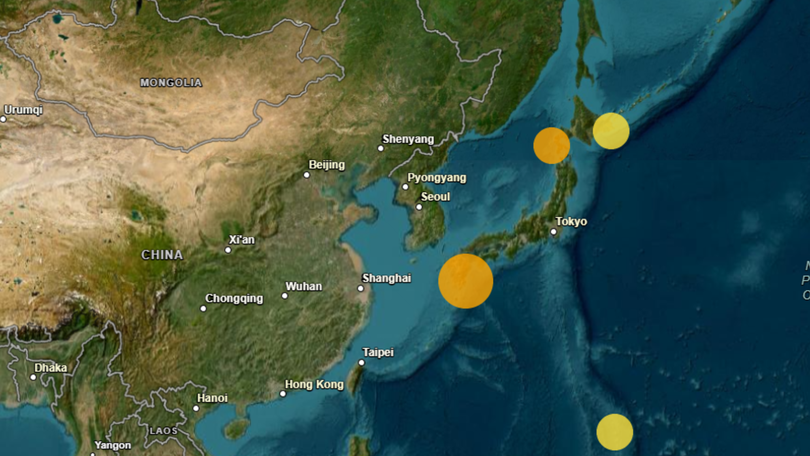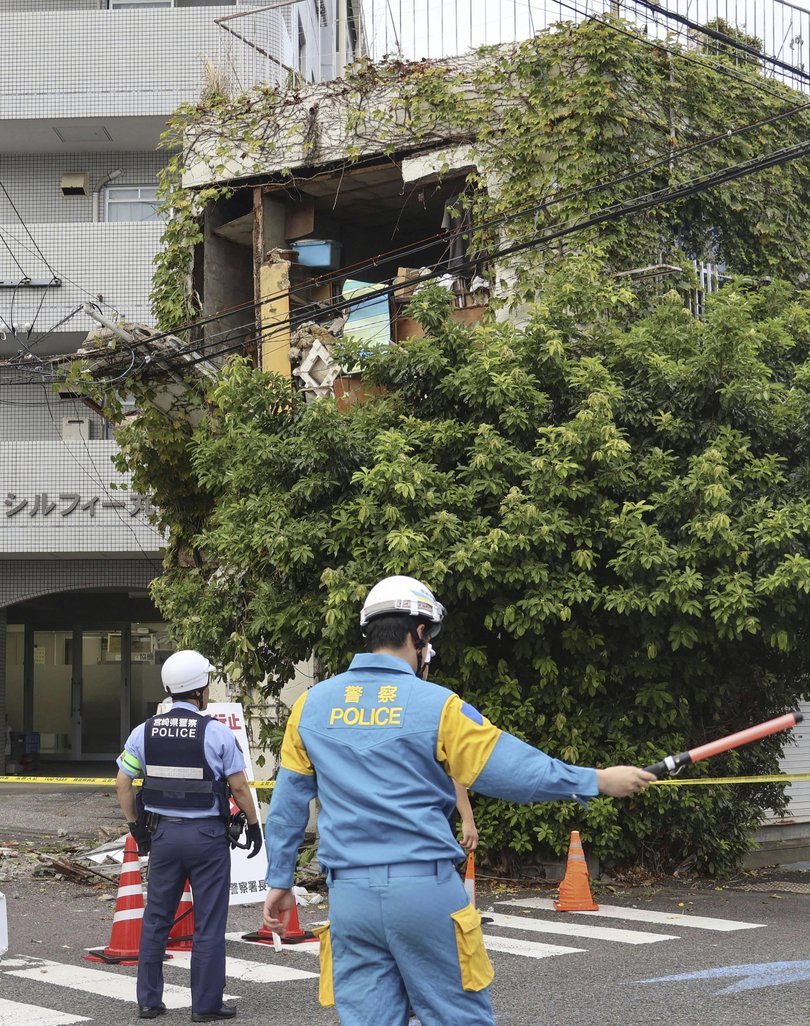Japan issues first ‘megaquake’ warning after 7.1-magnitude tremor

Japan issued its first warning on Thursday about the possibility of a long-feared “megaquake”.
It comes after a powerful 7.1 magnitude tremor struck off its southern coast, sparking a tsunami advisory but no immediate reports of serious damage or injuries.
The earthquake occurred off the coast of Miyazaki Prefecture on the main island of Kyushu at 4.42pm local time at a depth of about 29km, according to the Japan Meteorological Agency.
Sign up to The Nightly's newsletters.
Get the first look at the digital newspaper, curated daily stories and breaking headlines delivered to your inbox.
By continuing you agree to our Terms and Privacy Policy.Three people were reported injured, Japan’s Chief Cabinet Secretary Yoshimasa Hayashi said, although he added that there had been no blackouts or damage to the water or communications systems reported in the region.
Police in Miyazaki Prefecture said there had been 10 reports of damage. Hayashi urged residents to stay away from the coastline.
Seismologists held an emergency meeting to analyse whether the quake had affected the nearby Nankai Trough — the source of past devastating earthquakes.
The meteorological agency ultimately issued what it called a “mega earthquake caution”, assessing that the possibility of a large quake was relatively higher than usual but not that one would definitely occur in the near future.
It urged the country’s residents to practice increased vigilance for the next week.
“We ask all citizens to carefully check every new information issued by the government, reconfirm their daily earthquake preparedness, and be ready to evacuate immediately in the event of an earthquake,” Prime Minister Fumio Kishida said in a news briefing.

Earlier, officials issued a tsunami advisory following Thursday morning’s quake, warning residents to immediately leave coastal areas of Kochi and Miyazaki prefectures until the warning is lifted. Advisories are issued when the waves are not expected to exceed 1m.
Tsunami waves of up to 1.6 feet (48.7cm) were detected along parts of Kyushu’s southern coast and the nearby island of Shikoku about a half hour after the quake struck. Japanese broadcaster NHK said Miyazaki Port had reported a surge of 20 inches (50.8cm).
That said, most of the damage so far has been relatively light. Police in Miyazaki Prefecture said there have been some reports of landslides and some traffic lights have stopped working.
NHK said some windows were broken at the prefecture’s airport and that the runway had been temporarily closed for checks.
Meanwhile, in neighbouring Kagoshima Prefecture, concrete walls collapsed, and a wooden house was damaged.
Of the people injured across the two prefectures, two are reported to be older women, who were taken to hospital after falling, while another was a female factory worker struck in the back by a falling object.
The Nuclear Regulation Authority said all 12 nuclear reactors on Kyushu and Shikoku remain safe.
Earthquakes in areas with nuclear power plants have been a major concern since a massive 9.0 magnitude earthquake and ensuing tsunami triggered the Fukushima nuclear disaster in March 2011.
Japan sits on the Pacific “Ring of Fire” — a line of seismic faults encircling the Pacific Ocean — and is one of the world’s most earthquake-prone countries.
A tremor there in Japan’s north-central region of Noto on January 1 left more than 240 people dead.
Originally published on NBC
